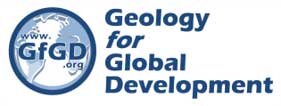Earth Science is Critical for Delivering the Ambitions of the Paris Agreement
A statement from GfGD as COP26 gets underway
Next week, GfGD will join the 26th United Nations Climate Change Conference of the Parties (COP26, Glasgow); a key opportunity to secure actions which limit global warming to 1.5 degrees Celsius and combat dangerous human interference with the climate system. During the negotiations, world leaders will also aim to establish long-term strategies that can ensure climate neutrality by 2050 and make progress on building resilience.
At the heart of the Paris Agreement lie the nationally determined contributions (NDCs), which embody the efforts by each country to reduce national emissions and adapt to the impacts of climate change.
The role of Earth science in meeting the goals of the Paris Agreement
A deep understanding of Earth processes and resources, and how they are affected by climate change, is needed to mitigate against increasing temperatures and build resilience to the impacts of a climate that is already changing. Earth scientists - those with knowledge of geological resources, dynamics, and systems - have a key role to play if we are to collectively reduce emissions and achieve a low carbon economy.
Resources such as minerals, metals, and water, as well as the characterisation of the subsurface, are required for a just transition from fossil fuels to low-carbon alternatives and the decarbonisation of our transport networks. Subsurface technologies such as carbon capture and storage and geothermal energy will also help reduce the environmental impact of heating and cooling our built environments.
Earth scientists across industry, research, and the public sector are well placed to help develop and implement NDCs, and related strategies. This breadth of expertise and knowledge means the Earth science community has an opportunity and responsibility to engage in the UN Framework Convention on Climate Change (UNFCCC), and support delivery of the Paris Agreement.
GfGD at COP26
GfGD will be at COP26, represented by three members of the team, including our Executive Director, Dr Joel C. Gill. While at the summit, we will be advocating for climate action through a series of Earth science based perspectives and recommendations:
Earth System Science should be at the core of mainstream primary and secondary science education; strengthening public understanding of the climate crisis.
Improved public understanding of the dynamics of environmental systems can help to encourage appropriate and decisive actions, at all levels, to deliver NDCs. Therefore, governments must ensure that understanding of the natural environment is at the centre of ‘education for sustainable development’,
Governments must evaluate what Earth science contributions are required to deliver their climate change strategies, and take appropriate steps to ensure the need for this capacity is reflected in science and higher education strategies.
Delivering and extending the ambitions of NDCs will require Earth scientists with specialised training in (for example) hydrogeology, mining geology, engineering geology, and waste management. A lack of appropriate Earth science expertise will hinder our ability to deliver the mitigation and adaptation ambitions of the Paris Agreement.
National governments must engage with the Earth science professional community to understand how the protection, conservation, and restoration of carbon sinks can be strengthened.
Ecosystems and their biodiversity, topography and landforms are shaped (in part) by the underlying geology and geological processes on the land surface and subsurface. These complex interrelationships must be understood to achieve the ambitions of the Paris Agreement (e.g., informing reforestation and afforestation programmes), requiring increased collaborations between Earth scientists and ecologists. Valuing and protecting geodiversity is key to tackling the climate crisis.
Greater support is needed for those institutions tasked with environmental data collection, management, integration, analysis, and access.
To strengthen resilience of the world's poorest communities, and their agricultural systems, infrastructure, and cities to the effects of climate change, we must understand Earth resources, systems, and dynamics. National geological surveys, hazard monitoring agencies, ministries of water and other similar institutions are key to this work, and can inform policy formulation and implementation to deliver sustainable development.
Earth scientists are part of the solution to climate change. With GfGD securing formal observer status to the UNFCCC at COP26, we look forward to increasing access to Earth science expertise in this, and future, international climate negotiations.
————————————————————————————————————————————————————
Note to editors
For further information contact:
Laura Roberts-Artal
GfGD Communications Lead
E: laura@gfgd.org
About Geology for Global Development (GfGD)
Geology for Global Development (GfGD) is a registered charity in England and Wales (Registered Charity Number: 1165663). Our purpose is to champion the role of geology in sustainable development, mobilising and reshaping the geology community to help deliver the UN Sustainable Development Goals (2015–2030).
For more news and insights from GfGD follow us on Twitter and Facebook, LinkedIn or visit our website.

